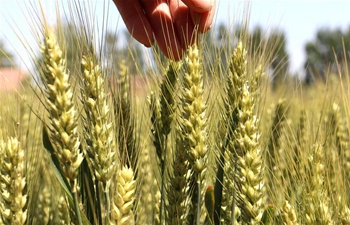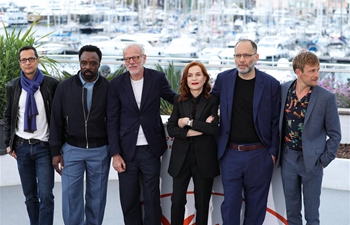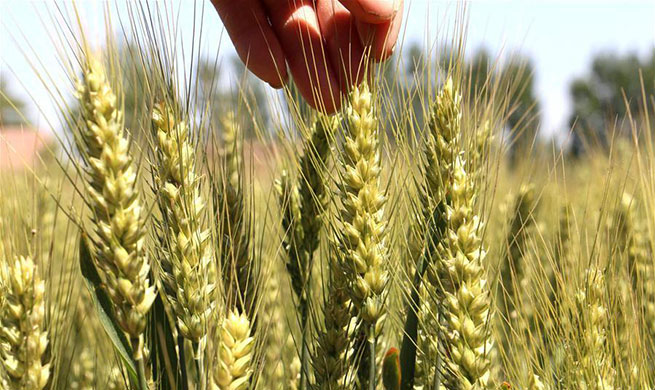BERLIN, May 21 (Xinhua) -- The Rhine/Main Regional Transport Association (RMV) awarded the French company Alstom a contract to supply and support a fleet of 27 fuel cell trains in the German state of Hesse, the RMV announced on Tuesday.
"With the commissioning of the new vehicles in 2022, RMV will have the world's largest fleet of fuel cell trains in passenger transport," said RMV chief executive officer (CEO) Knut Ringat.
"After electrically powered trains, electric buses and hydrogen buses, we are now offering our passengers a further opportunity to travel without emissions," Ringat said.
"Diesel vehicles are still on the rails in many places in Hessen today because overhead lines are missing. The fuel cell drive is a quick alternative to electrification," said Hesse's Minister for Transport Tarek Al-Wazir.
The order in Hesse included the supply of hydrogen, maintenance and reserve capacities for the next 25 years in addition to the trains, the RMV announced.
Alstom would offer the supply of hydrogen in cooperation with German industrial park operator Infraserv Hoechst.
The order was worth around 500 million euros (557.6 million U.S. dollars) including the 25 years of maintenance and the supply of hydrogen, according to the German regional transport association.
The German government supported the investment by covering 40 percent of the additional fuel cell train costs incurred relative to diesel trains as well as providing proportional funding for the hydrogen filling station.
Alstom's German subsidiary in Lower Saxony had developed a hydrogen-powered train based on a diesel driven train, the so-called Coradia iLint.
The Coradia iLint, the world's first hydrogen-powered train, had been in regular service in the Elbe-Weser rail network in Lower Saxony since September 2018, according to Alstom.
Carbon dioxide (CO2) emissions in Germany's transport sector had stagnated since 1990 and the German government recently projected that CO2 emissions from transport would only fall 9 percent below the 1990 level by 2030 using current measures.













